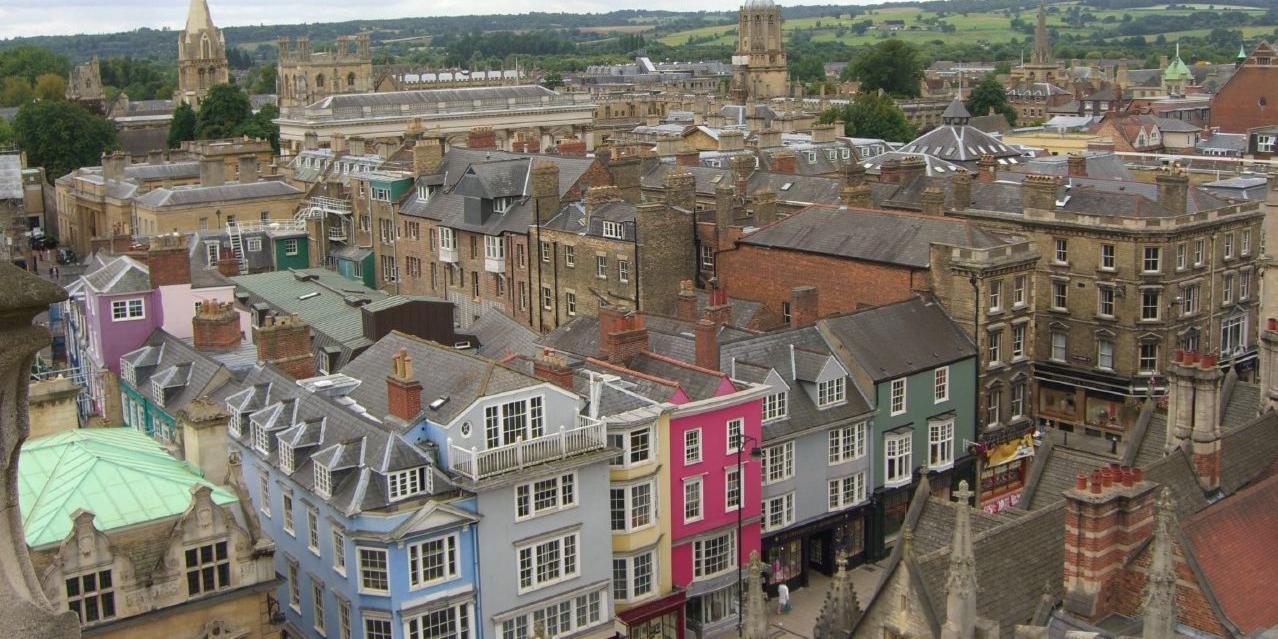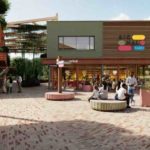Oxford needs to support its businesses and residents to help its tourism industry recover from the pandemic, guests heard at the latest UK Prop Social event.
Our Spotlight on Oxford webinar on December 10, presented by Hugh Blaza, heard from some of the city’s key players including Hayley Beer-Gamage, chief executive of Experience Oxfordshire.
She told a sold out audience of 150 that while numbers of the UK’s inbound (international) visitors are not expected to reach pre-Covid levels until 2024, only a third of British people plan to go abroad next year.
She went on: “That is a huge opportunity because we’ve always had this tourism deficit in this country whereby Brits spend more going abroad than inbound markets spend in the UK.
“So, if there is a domestic boom over the next 12 to 24 months, then the city of Oxford needs to be ready to welcome those visitors back with open arms.”
Ms Beer-Gamage said talking to locals and supporting businesses was essential. Many businesses had already been lost through the reduced numbers of visitors this Summer.
She welcomed news of new developments in the city including improvements to the Covered Market which she said ought to be an attraction itself.
But she added: “As the city of Oxford, we have been quite complacent in terms of ‘we are Oxford, people will come’. And, historically, we had started to rank really poorly on things like visitor welcome, access to heritage assets and retail.
“The most important thing for me going forward is that Oxford remains an aspirational destination but also that we are making sure that the experience lives up to the aspiration.”
Ms Beer-Gamage suggested investment is required in the city’s assets along with work to address issues from coach parking and transport congestion to overcrowding, lack of pedestrian areas and inadequate signage. And she called for a joint approach.
She said: “I think now we are really forced to work together and collaborate to address those issues so that the city of Oxford can be great, so that locals benefit and that we are economically prosperous.”
Earlier, Tom Bridgman, executive director of development for Oxford City Council, explained developments and improvements coming to the city including how the the council-owned Covered Market, which he called the centre’s ‘jewel in the crown’, will be improved.
He said: “It seems to us, and to people we engage with, that putting this right in terms of making this a much better destination, is absolutely critical.”
He said getting the mix of stallholders right, improving the Market Street entrance with food and drink provision outside and creating more space inside is envisaged and, once improved, the market could help drive footfall in the city centre.
Mr Bridgman highlighted wide-ranging developments across Oxford including the iconic former Boswells department store, destined to be a four star hotel. It is planned to have publicly available co-working spaces on the ground and top floors.
Transport, he said, requires major improvements and a central congestion charge area is likely to be on place by August 2021 along with a wider zero emissions zone the following Spring.
There are major plans for improved rail infrastructure and alterations to bus services are planned which must work alongside pedestrianisation plans.
James Andrews, partner at KLM Retail, said Oxford is a special example of the potential for the rebirth of city centres.
He said the UK has suffered from the hollowing out of centres which was less common in continental Europe where there is often a greater a mix of uses including residential.
In the UK, cities traditionally competed by building bigger shopping centres but now internet shopping has reduced spending by between 20 and 30 per cent.
He added: “What’s going to be important now is for city centre owners to work together to make city centres attractive enough to pull people in and dissuade them from shopping online.
“That’s why the city centre group, who we’ve given some advice to, has pooled its thoughts.”
Jon Alsop, director of planning for Savills Oxford, said while online retailing had had an impact, retail spending actually increased after the first lockdown.
He said despite its global significance, Oxford, is ‘a small market town’ in terms of its geographical size. However, major growth sites on the fringes of the city will bring about major change.
Opportunities to improve conditions for growth, he said, include planning reforms, business rates reform, sustainable transport, the ‘living over the shop’ concept, environmental improvements and partnership working.
© Thames Tap (powered by ukpropertyforums.com).
Sign up to receive your free weekly Thames Tap newsletter here.
















